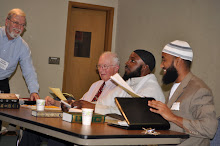Times Writers Group: 'Speak English' isn't that easy
By Lois Thielen • July 6, 2009
Read Comments(55)Recommend(2)
When I hear someone ranting about how the Vietnamese, Hmongs, Mexicans, Somalis, etc., should learn to speak English and become assimilated into American culture a little faster, I think of my grandmother.
I never knew my father’s mother because she died four years before I was born, but I remember my father telling me he had been teaching her to read English when she was in her late 70s.
She had arrived in America from Germany with her family when she was 8, and nearly 70 years later, she was learning the language of her new country.
Should she have assimilated a littler sooner?
When the German immigrants arrived in Stearns County in the late 1800s, they usually joined an existing German settlement. Their neighbors and business associates were German or had learned the language in self-defense. Schools were taught in both languages; I still have some of my father’s childhood textbooks, which are printed in German on the left and English on the right hand pages. The Catholic churches, which most of them attended, said the Latin Mass but the sermon was preached in German.
Even social events featured only the German language. It was daunting to attend family gatherings for those not of German descent who had married into the family.
Such was the case with my aunt Martha, who was of Slovenian descent and married my dad’s brother. For years, until she learned enough German to understand what was being said, she wondered if the conversation was about her!
Today we would say these folks should have assimilated at a faster rate. After all, my father and his siblings were already the third generation to be in America; my great-grandfather’s family came here about 188O.
Assimilation means the adoption by an individual of some or all aspects of a dominant culture. When my ancestors got here, the dominant culture of the small towns and farms of Stearns County was German, close to what they had left in the old country. They made the same food, spoke the same language and kept many of the old customs going.
Subscribe to:
Post Comments (Atom)


















































No comments:
Post a Comment